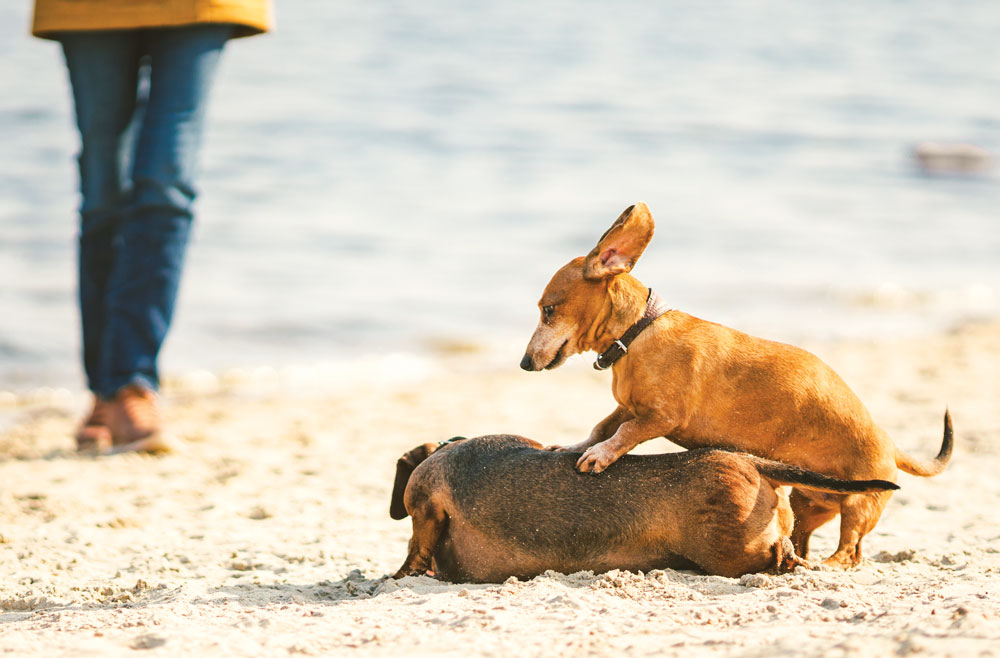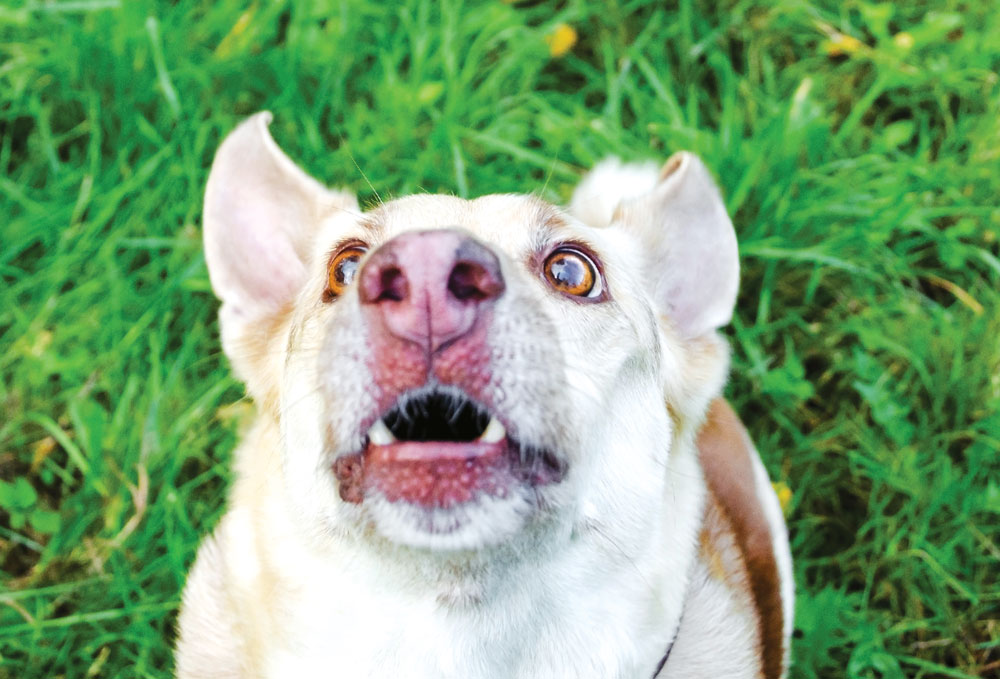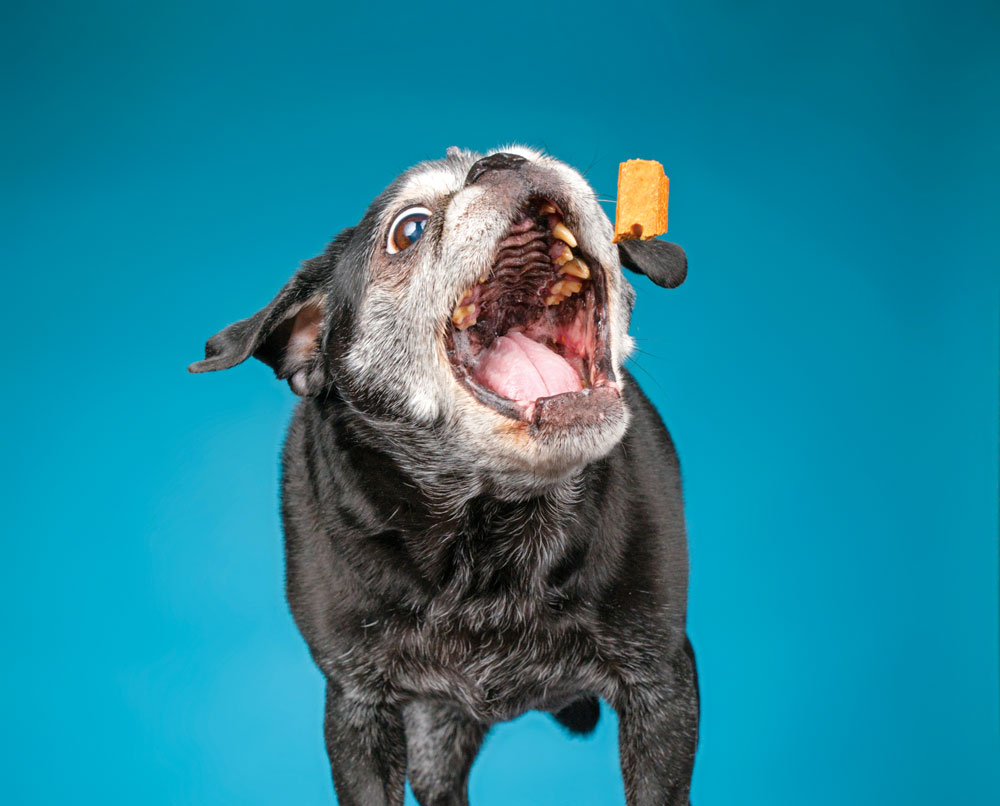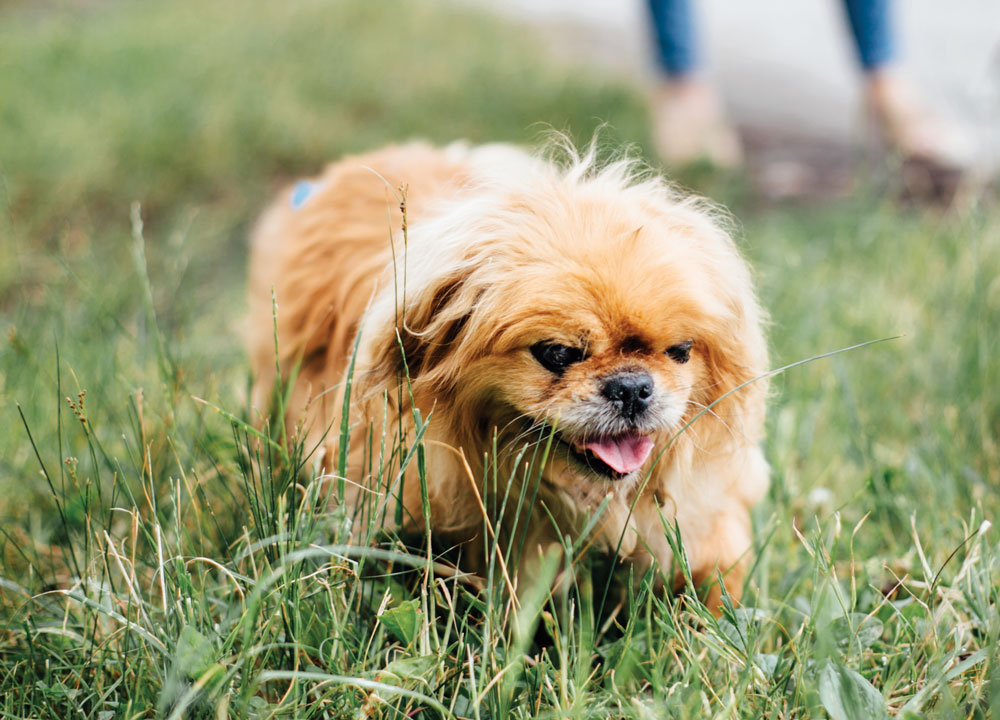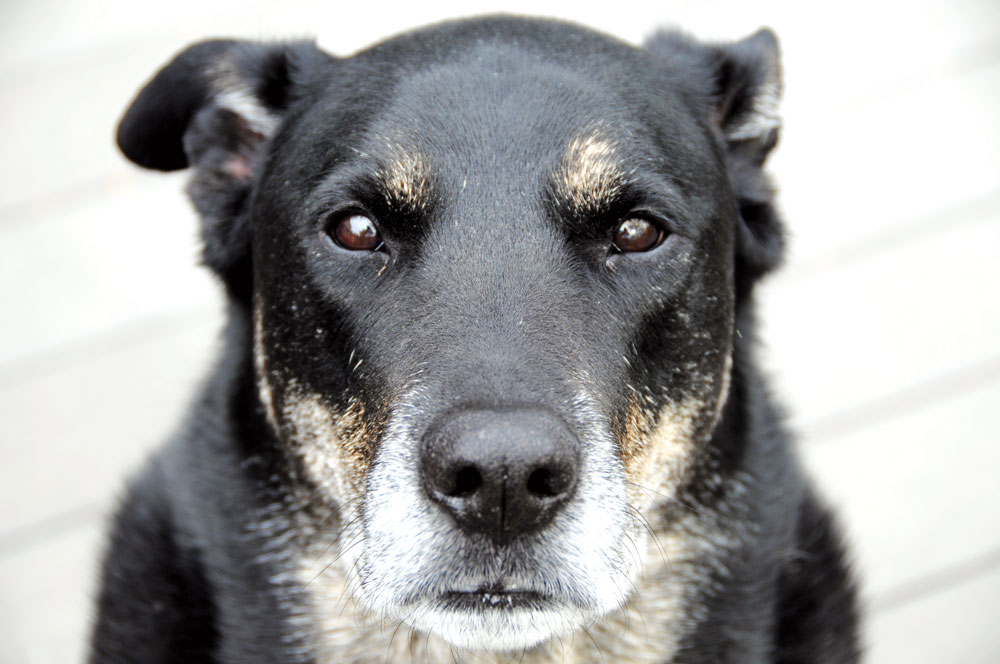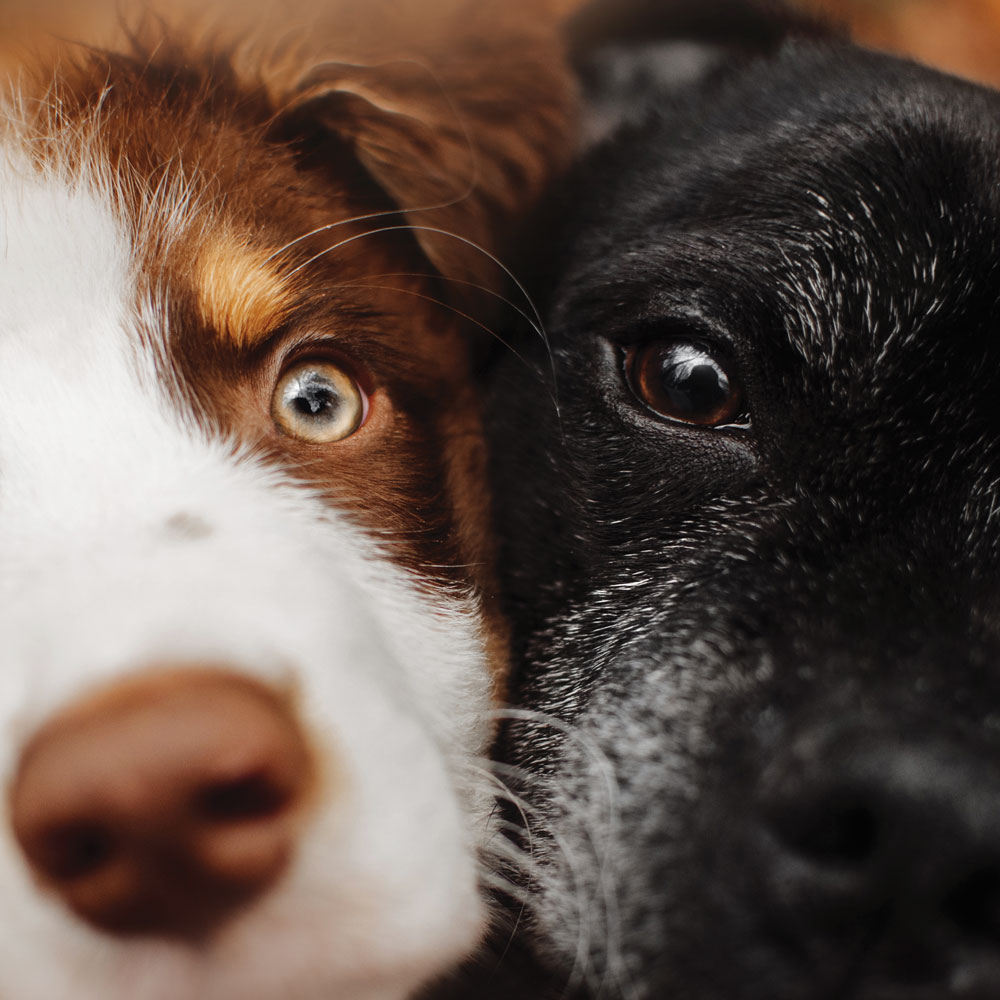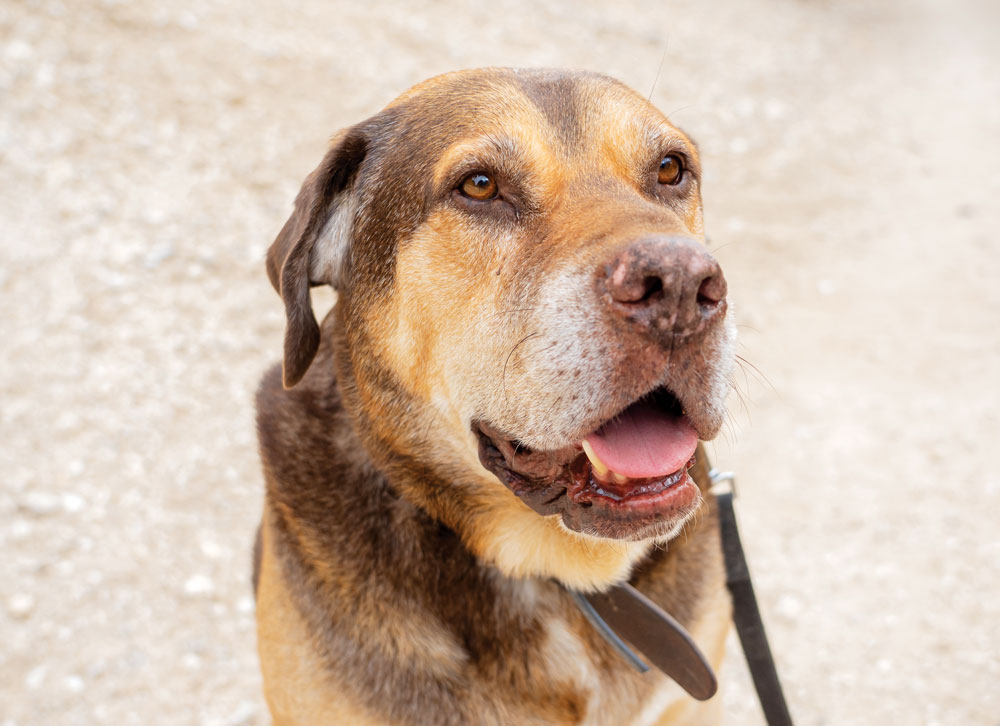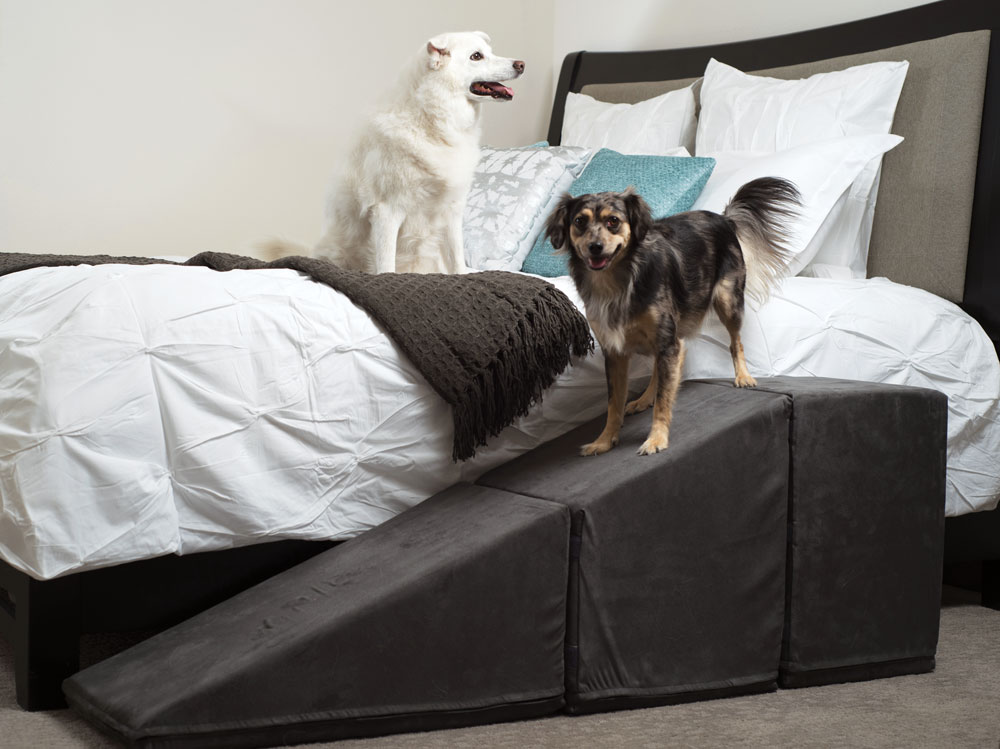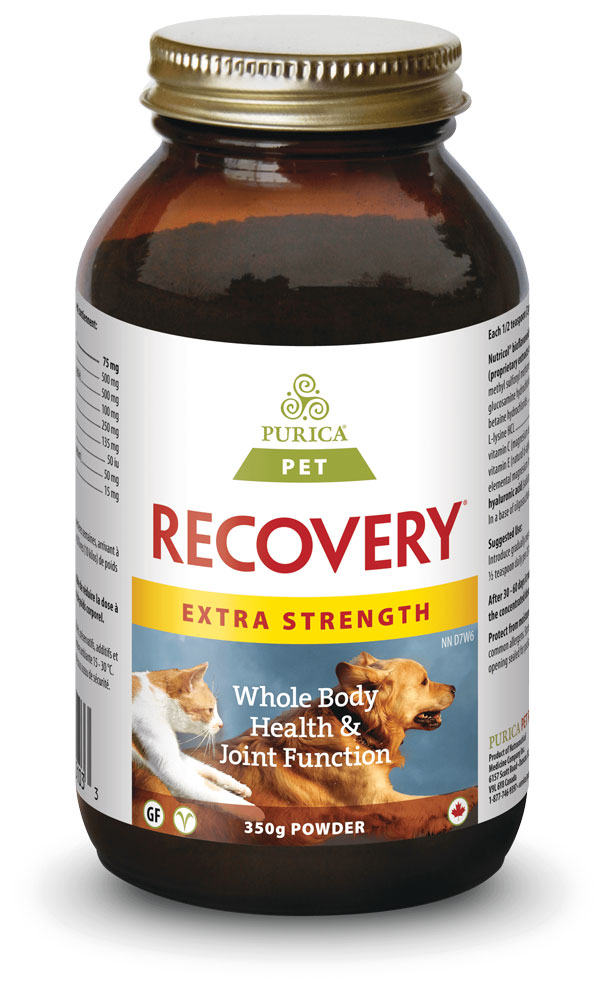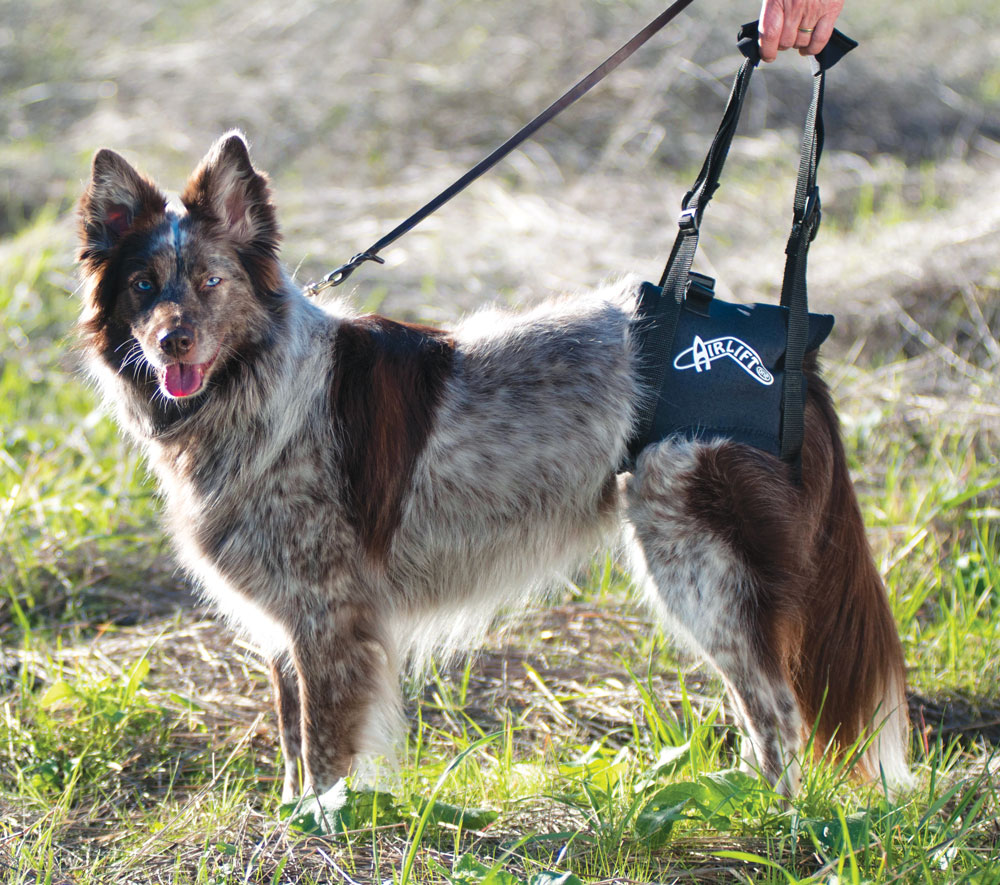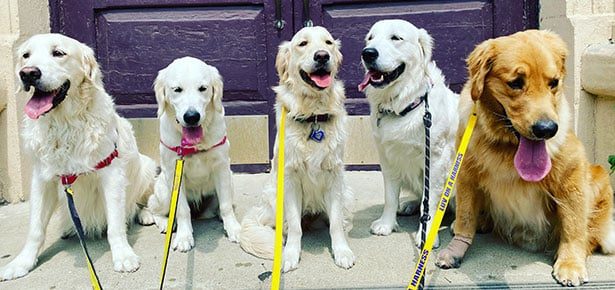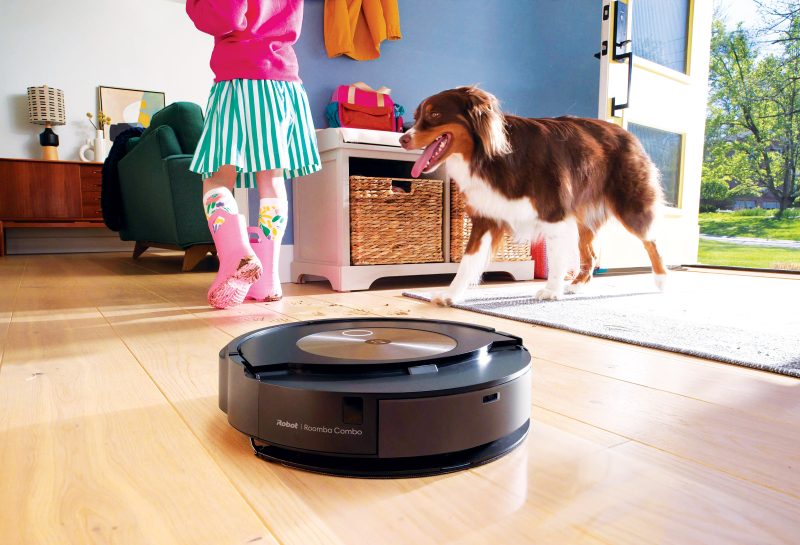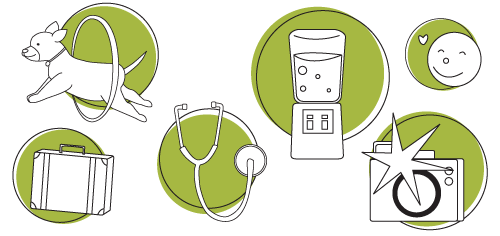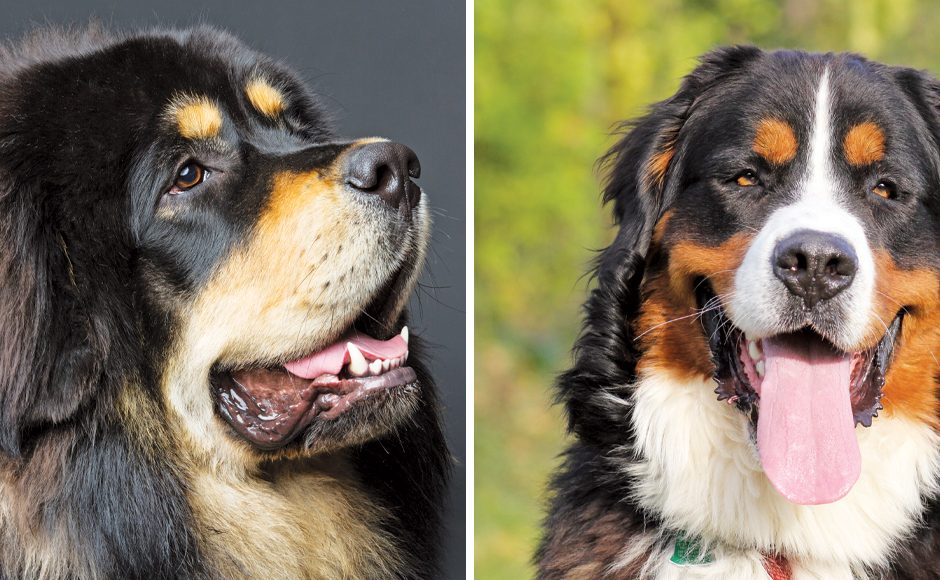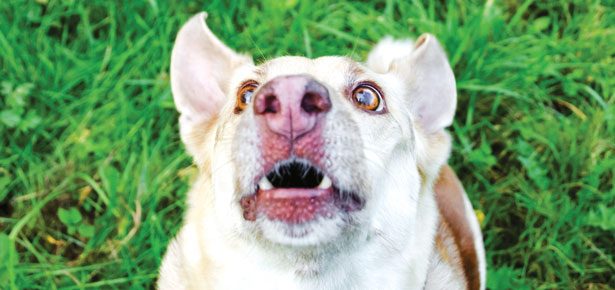
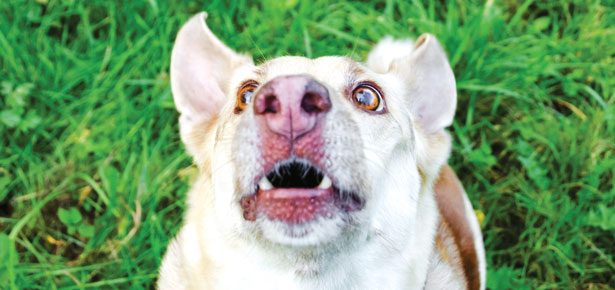
Enrichment For Senior Dogs
How to keep your senior dog happy and engaged despite advancing years and physical limitations
Zazie Todd, PhD, is an adjunct professor of Psychology at Canisius College, where she teaches a graduate course on Communicating Anthrozoology to the Public. She is also a certified animal behaviour consultant, Psychology Today contributor, and author of the popular blog, Companion Animal Psychology. Her new book, Wag: The Science of Making Your Dog Happy is, quite simply, a must read if you’re serious about your dog’s happiness. Here Zazie shares her top tips for keeping your senior dog engaged and involved despite advancing years.
Enrichment is especially important for senior dogs. Now that my own dog, Bodger, is a senior, this subject is dear to my heart. Here are my top tips for your golden oldie.
Image: fotoliza/bigstock.com
Involvement in Family Life
Even with the best of intentions, many people find that their senior dog is no longer as involved in family life as before. Perhaps the dog who once loved long hikes is no longer able to keep up, or health issues like incontinence or difficulty walking on slippery floors mean the dog is no longer spending as much time with their humans. Sometimes a puppy is acquired with the hope of providing friendship and fun for the senior dog, but instead takes up all the time.
Involving senior dogs in regular activities that they enjoyed when younger is good for them because it provides sociable experiences and cognitive enrichment. According to research published in Frontiers in Veterinary Science, senior and geriatric dogs that spend more time playing with their owner and engaged in activities with them are more responsive to training, suggesting that these activities are beneficial. While more research is needed, it seems that interventions to increase play, training, and activity are good for older dogs.
“Include them in outings and family activities as much as they are physically able,” says Sarah Pennington of Yaletown Dog Training in Vancouver, BC, who has a senior dog of her own—17-year-old Macy. “If off-leash hikes were part of their life, take them for shorter walks in the woods. If they have lost their hearing or have cognitive decline, for safety consider using a harness and long leash (15-30 ft.) instead of letting them off leash”.
Sarah also has some tips for inside the house. “When Macy became incontinent,” she says, “we lined her bed with garbage bags and covered it in washable bedding. We bought disposable baby diapers in bulk. They worked well and come in many sizes. You just need to cut an x in them for the tail. Hardwood floors may need throw carpets to allow them to walk room to room without slipping.”
Be thoughtful in making changes to enable your senior dog to remain an active part of your family for as long as possible.
Image: TayaKorchak/bigstock.com
Play
Play is one way to help to maintain the relationship between dog and person as the dog ages. A senior dog may not have the same energy levels as they used to but that doesn’t mean they can’t have fun. “Play modified versions of their favourite games if they still enjoy them and are physically able,” says Sarah, “for example a very short light game of tug or just a few throws of a tennis ball.”
It doesn’t matter if they can no longer play fetch for an hour at a time; stick within the limits of what they can do, and let them have a go. The aim is to keep them taking part in play activities that they have always enjoyed, but it’s not too late to try new games too. We adapted fetch for Bodger by teaching him the names of different toys, and having him get each one in the living room. The distance travelled per fetch is much smaller than it used to be, but there’s the cognitive effort of recognizing which toy he is supposed to get, and he loves it.
Image: graphicphoto/bigstock.com
Trick Training for Senior Dogs
Training helps prevent cognitive decline in senior dogs, according to research published in Behavioural Processes. Your senior dog probably doesn’t need obedience training but teaching tricks is a great way to let them enjoy the fun of positive reinforcement training. “For senior dogs, learning tricks offers the opportunity to keep their body active, but also—and I think most importantly—their mind active and engaged,” says Sassafras Lowrey, author of Tricks in the City: For Daring Dogs and the Humans that Love Them. “Too often older dogs get left out or left behind, but teaching your senior dog tricks is an opportunity to spend intentional time with your dog building new skills and deepening your relationship. Learning and practicing tricks also helps senior dogs to remain mentally sharp.”
How quickly senior dogs learn new tricks will depend on their previous experience. Sassafras says, “For example my 17-year-old retired service dog, who has his whole life worked or played with sport training, hikes, swims, surfs etc., is going to have an easier time with a wider array of tricks because he already, even for his age, is active and knows a lot about learning. With a senior dog who might have spent the last decade sleeping on the couch you’ll want to go a little slower. That said every dog can learn tricks; it’s never too late!”
Make sure you have some of your dog’s favourite treats (or a selection of them) to use in training. Keep sessions short to keep your dog engaged and break down the trick into multiple stages so as to keep the training nice and easy. Sassafras recommends working within your dog’s comfort level and avoiding high impact tricks for senior dogs.
Image: Bogdan Sonjachnyj/shutterstock.com
Scent Activities
Senior dogs can have sensory decline, and the biggest changes are reported to occur as dogs become geriatric (over 12 for a Border Collie, earlier for larger breed dogs). Loss of vision and loss of hearing are common, and may not be noticed by the owner until they are quite advanced. Loss of the sense of smell, although possible, has not been documented to the same extent. Hence, activities involving scent are suitable enrichment activities for most senior dogs.
This is easy to incorporate into everyday life. “Take them for shorter daily walks with a focus on plenty of sniff time,” says Sarah. As well, you can throw treats into the grass (in a safe location) or hide them around the house for your dog to find. Participation in scent work is good for dog’s welfare, according to research published in Applied Animal Behaviour Science, and it seems likely that ad-hoc scent activities are also good for dogs.
Image: Cloudburst/bigstock.com
Food Puzzle Toys
Food puzzle toys are great for dogs of any age and there are many different types to choose from. When introducing them, use high value treats (rather than kibble) to get your dog interested, and be sure to make them easy. As your dog learns how to manipulate them to get the food out, you can begin to add kibble as well as treats and gradually make them harder. You may even end up feeding all of your dog’s meals through food puzzle toys.
Image: Ksuksa/bigstock.com
Hanging Out With Other Chill Dogs
Older dogs may not have as much energy for full-on play and wrestling, but senior dogs can still enjoy playtime with other dogs, especially if they are well-matched for size and energy levels. Even if they don’t engage in as much play, don’t assume they don’t enjoy spending time with their canine friends. Dogs are social creatures, and if your dog has enjoyed hanging out with other dogs up until now, try to keep that going in the senior years. Even if they are just in the same space, sniffing the same patches of grass, that’s still a nice sociable time. It’s kind of like us, choosing to relax with an old friend over coffee rather than go on an energetic hike.
Image: SB Arts Media/bigstock.com
Special Consideration For Senior Dogs
As senior dogs are more likely than younger dogs to be overweight, take any treats used in training or other activities out of their daily calorie allowance. And remember not to automatically put changes down to age. If you have concerns, see your veterinarian. They will help you keep your senior dog healthy and active into old age.
Being considerate in choosing enrichment activities is part of the responsibility of being a senior dog owner. Sassafras says, “I think it’s heartbreaking when people give up on their older dogs. In reality, senior dogs are full of life and possibility.” Meanwhile, Sarah reminds us, “Give them lots of snuggle time and love.” In my own case, since a cancer diagnosis means Bodger will not have as long as we’d hoped, every day with him is one to be cherished. Senior dogs deserve the best in their golden years, and enrichment will keep them golden for longer.
Senior Picks!
Give your senior dog a leg up with these products that can transform an older dog’s life.
Royal Ramps are a perfect solution to your dog’s decreased mobility. Available in stair or ramp styles, they are great for dogs who experience difficulty getting onto the couch or bed. (From $209, royalramps.com)
Improve your golden oldie’s bone, muscle, and connective tissue strength with Purica Pet Recovery Extra Strength Whole Body Health For Pets. Containing Nutricol, a proprietary bioflavonoid complex containing EGCG, theaflavin, proanthocyanidins and resveratrol from Vitis vinifera and Camellia sinensis, along with hyaluronic acid, it helps to prevent injury and reduces pain, inflammation, and spasms. (From $28, purica.com)
Help your senior dog enjoy walks again with a Backend Harness from Walkabout Harnesses. It’s the perfect solution for dogs with stiff back leg joints and arthritis, allowing you to comfortably support their mobility. (From $38, walkaboutharnesses.com)
Looking for a natural way to treat your aging pup’s joint pain? Check out our list of 8 natural joint supplements here.
Join the newsletter and never miss out on dog content again!
"*" indicates required fields
By clicking the arrow, you agree to our web Terms of Use and Privacy & Cookie Policy. Easy unsubscribe links are provided in every email.
